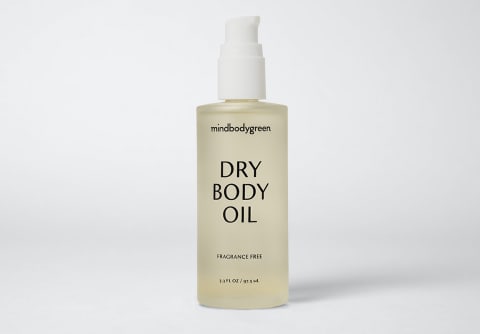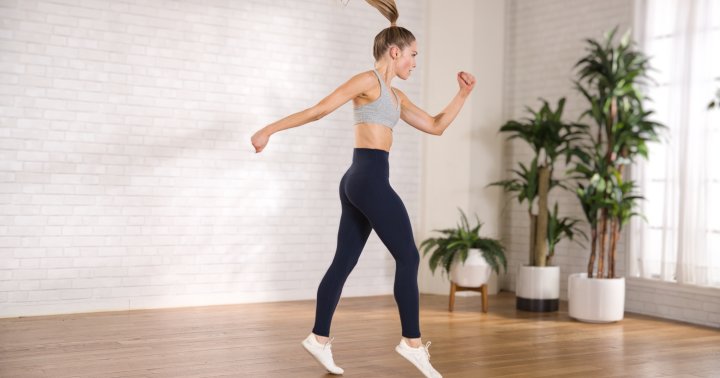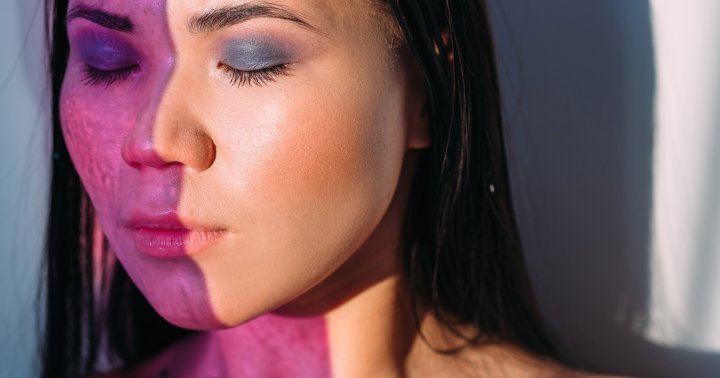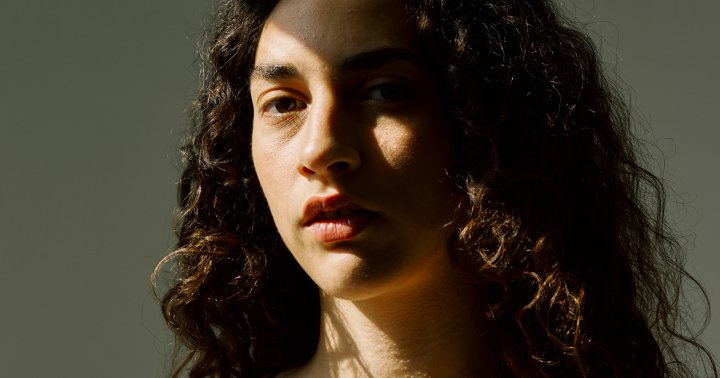The Unexpected Key To Silky Strands (No, Not A Serum)
A fun bonus!

Advertisement
This ad is displayed using third party content and we do not control its accessibility features.

Senior Beauty & Lifestyle Director
Senior Beauty & Lifestyle Director
Alexandra Engler is the senior beauty and lifestyle director at mindbodygreen and host of the beauty podcast Clean Beauty School. Previously, she's held beauty roles at Harper's Bazaar, Marie Claire, SELF, and Cosmopolitan; her byline has appeared in Esquire, Sports Illustrated, and Allure.com.
Image by Ohlamour Studio / Stocksy September 26, 2024 When we set out to make mindbodygreen's dry body oil, I knew I wanted it to feel weightless on the body. Our intent with this blend was to create something that was light on the skin and applied effortlessly—with no thick residue that you had to worry about transferring to your clothing or linens later. I'm pretty confident in saying we did just that (mbg staffers agree). But what I wasn't expecting is just how many uses I'd come up with for the oil. Because I've been using and testing the formula for a year now, I've had ample time to play around with it in my routine. And because I know how high-quality the oils used in this blend are, I'm comfortable using the formula in a variety of ways—including for my hair.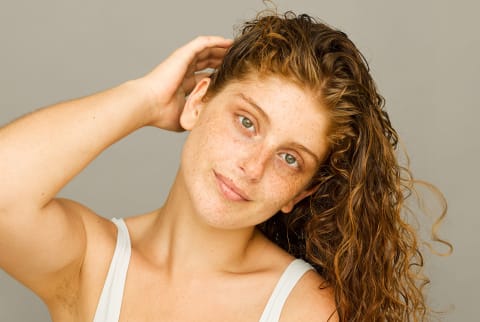
How to use mindbodygreen's dry body oil as a hair oil
The mindbodygreen dry body oil uses a blend of lightweight, fast-absorbing botanical oils that are actually very commonly found in other hair oils. For example, sunflower seed oil is a popular base as it plays well with other ingredients, has a thinner texture, is a light color, and is high in vitamin E. It also contains an organic safflower seed oil that's high in antioxidants and is also on the more dry side of the oily spectrum.
And there's prickly pear seed oil for an antioxidant boost, squalane to help seal in moisture, and vitamin E to nurture and condition. All in all, it's a simple, sophisticated blend that you might see in very similar formulas in the hair aisle.
I love a product that wears a lot of hats, so I decided to start playing around with it in my hair routine too. I've found it's an easy swap for several of my other hair oils. However, here I'd like to caveat that this is my own personal use case—and I'm very comfortable experimenting with the formula as I'm very aware of my own personal ingredient sensitivities and what works for me.
Post shampoo, I use it as part of my cocktailing routine. Because I have long, wavy, and naturally dry hair, I layer on leave-in conditioning products when the hair is damp to help keep the hair fiber soft and shiny. I've found that adding a thin coating of the oil as my last step helps trap in the nutrients from my leave-in without weighing the hair down as it dries. I'll apply it from midshaft to end, giving a bit more attention to the tips of the hair, as those are always the most in need of conditioning.
Or on days when I wear it up or in a braid, I use it to smooth down flyaways and add a soft glossy shine. The formula dissipates over the hair pretty evenly, so there are no clumpy, greasy patches. It's also very sheer wheat gold, so it doesn't tint my blond highlights, unlike amber hair oils.
But perhaps my favorite use: It also makes for a great scalp massage oil. On my wash days, I typically do some sort of pre-shampoo scalp massage before jumping into the shower. Scalp massages are great for hair health as they boost circulation to the area, physically help break up buildup, and provide nutrients to the skin from the oil itself. Research even shows that regular scalp massages can help improve hair growth1: In the 2019 study, 300 participants practiced daily scalp massages for about 10 minutes, and nearly 70% of them reported growth and increased thickness.
Doing this pre-shampoo ritual also provides another bonus: The oil adds a protective layer over the hair fiber, which can reduce physical damage during the wash. While a very necessary step to keep the scalp clean and irritation-free, washing the hair can be harsh on already fragile strands (like mine, which are prone to breakage). For those with damage-prone hair, adding a pre-shampoo oil can help reduce the risk of snagging and hair loss in the shower.
The takeaway
A great thing about oils is they are inherently multifaceted: If you find an oil with a balanced ingredient list and quality botanicals, you can play around with how you use it in your routine. While it may not be for everyone, I enjoy using it within my hair routine.

 Tekef
Tekef 